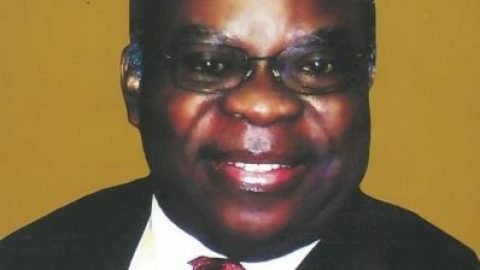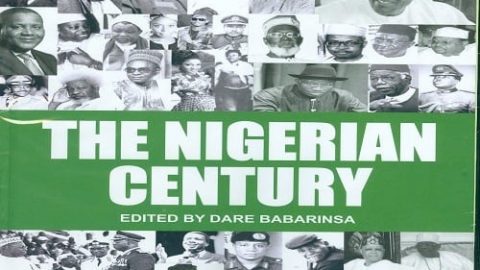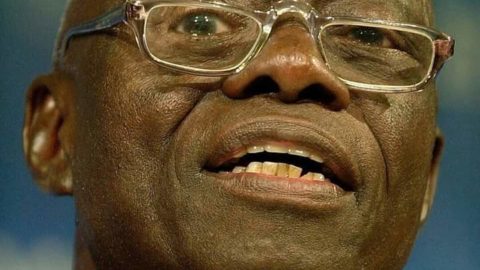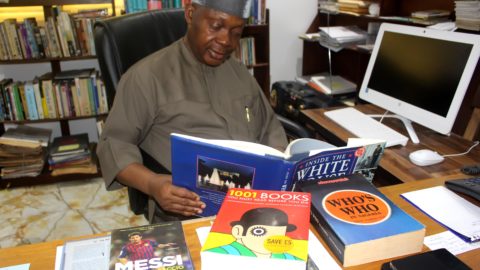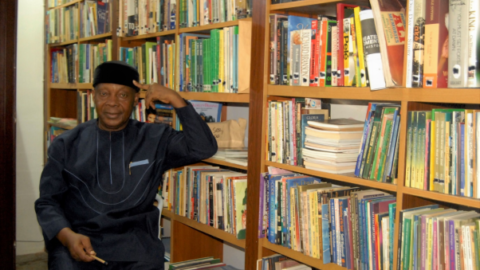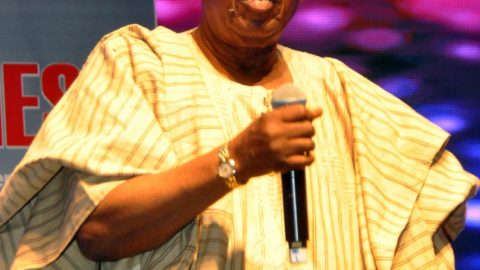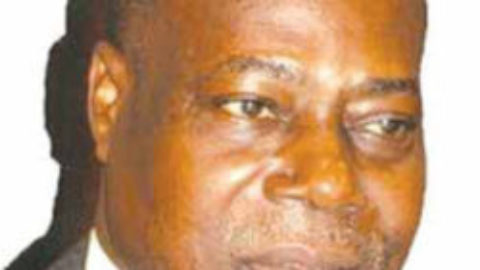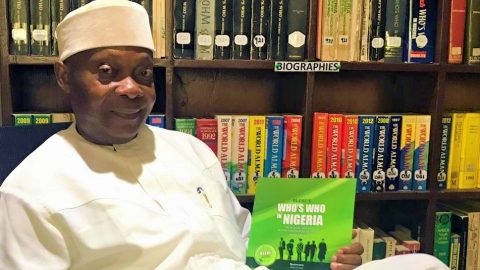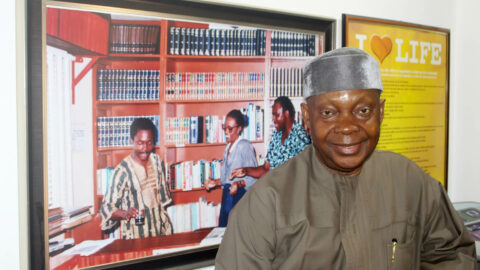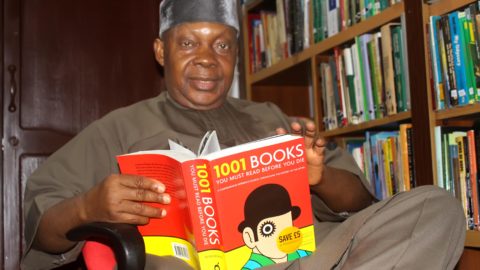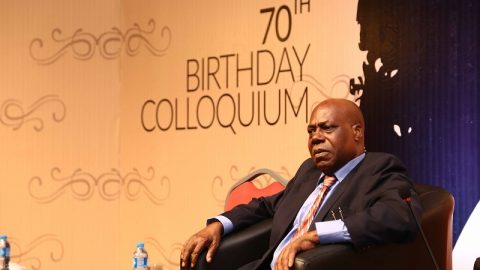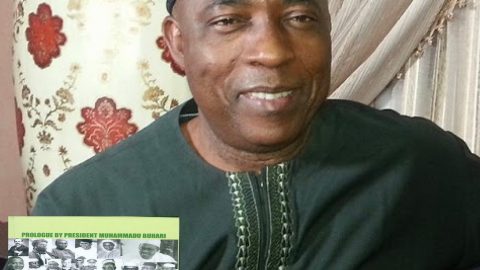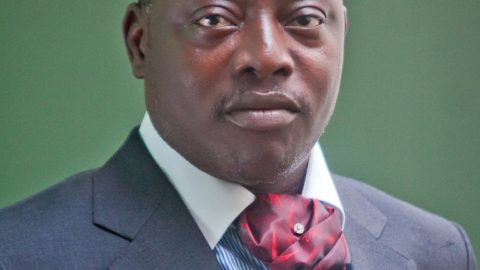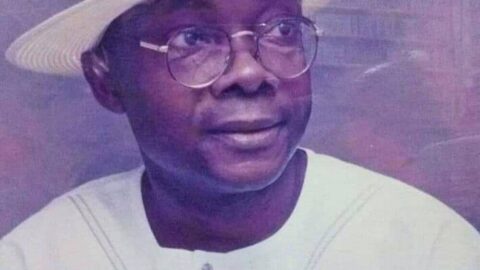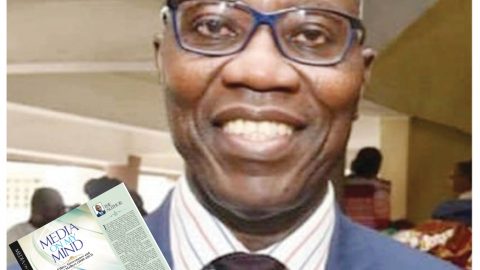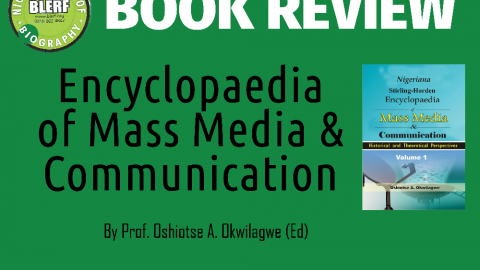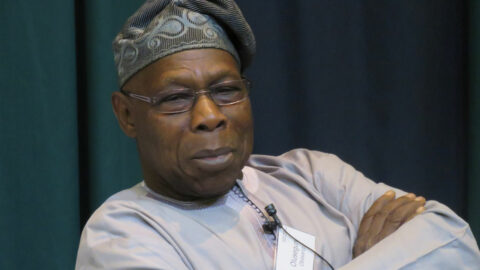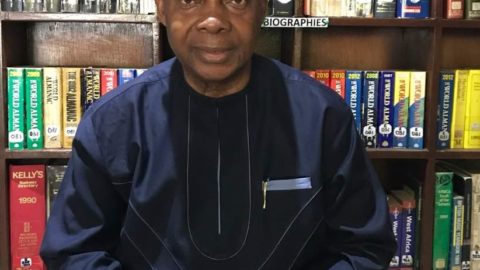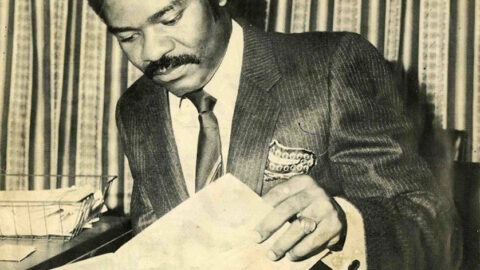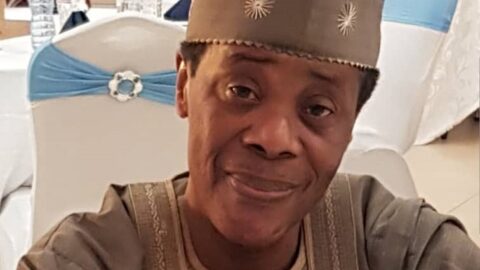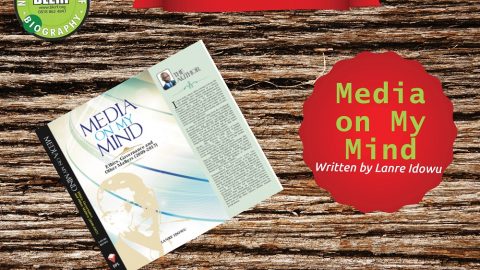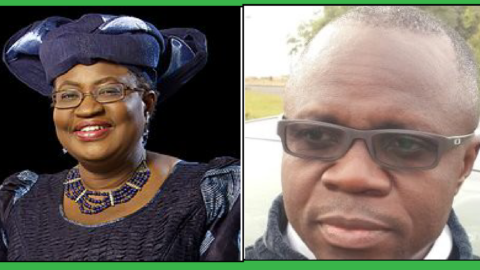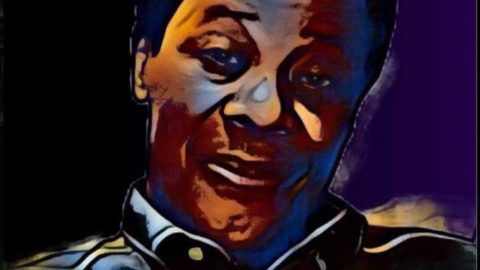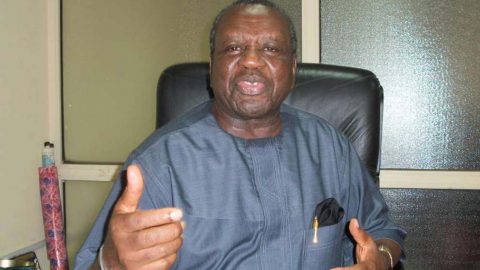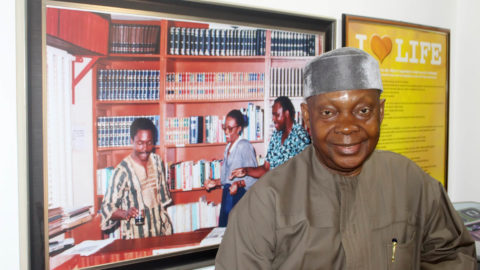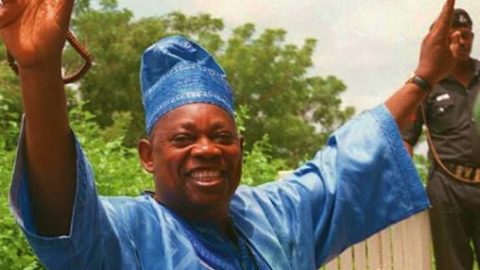Book Review By Dare Babarinsa
For almost seven decades, Chief Ayo Adebanjo, has been part of the Nigerian story. In his enthralling autobiography, Telling It As It Is, Adebanjo tells his own story. It is as boisterous and controversial as the engaging old politician who published this book to mark his 90th birthday anniversary. The 252-page book is decidedly brash and unrepentant. It made some disputatious assertions but it is an invaluable window to 70 years of Nigerian history by a participant-observer
Anyone who knows Chief Adebanjo, an honest politician, a reliable lawyer, a bold and fearless activist, would not be surprised about the abrasiveness of the language. He declared from the onset: “This is my odyssey; the story of my life- the political history of my existence on the earthly plane. And in writing this story I do not seek self-glorification or applause.”
The story, in truth, is about politics, its glorification, its glamour and its danger. It is about Adebanjo adoption of Awoism as his guiding principle and ideology. He regards himself as a leading apostle of the late Chief Obafemi Awolowo, the first Premier of the defunct Western Region and veteran Leader of the Opposition and the patron saint of the Awoist movement. “Awoism is the collective doctrine of the philosophy of Chief Obafemi Awolowo, his political philosophy, practice and political integrity that he was known for,” Adebanjo declares on page 135 of the book. “All the philosophies spelt out in his doctrine are free education, free health, integrated rural development and full employment.”
He declares further: “Anyone that deviates from these principles by word or deed is not an Awoist. Awoism is not personified by the cap Awo was wearing or any other mannerism of his, neither does wearing a replica of his glasses makes you an Awoist.”
Adebanjo has played no other brand of politics since his days as a student of the CMS Grammar School, Lagos, when Awolowo was a rising star in the nationalist movement dominated by the likes of Herbert Macaulay, Nnamdi Azikiwe and H.O. Davies. He was forged in the competitive environment of CMS Grammar School and the testimonial he received from the Reverend (later Bishop) S. I. Kale, the school principal, captures the picture of a self-assured youth. “A lad capable of understanding and appreciation of goodness and beauty, in morals and literary pursuits. He is a strong character,” declared the testimonial. Adebanjo graduated in 1949.
Adebanjo’s strength was to be tested by political vicissitude and the temptation of power; its alluring sirens and its dubious vixens. He took up a job as a third-class clerk in 1950 with the colonial service but was soon sacked for his rudeness to a European superior. By this time in 1952, he was already a member of the Egbe Omo Oduduwa, the Yoruba cultural movement that was the precursor of Awolowo’s Action Group, AG. He got a job with the Daily Service as a rookie reporter under the tutelage of the legendary Alhaji Lateef Jakande. In 1954, he was recruited by the AG as an organizing secretary for Remo Division, the home constituency of the leader, Chief Awolowo. Adebanjo had taken a leap that would change his life and that of our country forever.
He loved the job which afforded him special closeness to the leader. And the pay was good. Adebanjo was to learn that every rose has its thorns. After a failed marriage and another disastrous romance, he found true love when he sojourned in the U.K to study law. It was while there that he met Christie, his unquenchable flame of a lifetime, who life him, is a rider of the storm. They have been married for six decades. By the time he returned as Nigeria gained independence from Britain in 1960, it was into the caldron of political upheaval. Awolowo had left his job as Premier to his deputy, Chief Ladoke Akintola and the old party was soon wrecked by internal combustion.
The AG crisis was to have serious implications for the country. Awolowo and many of his followers were arrested and tried for treasonable felony. Adebanjo, who had just returned to the country, fled to Ghana where the radical President Kwame Nkrumah was friendly to Awolowo. In exile, Adebanjo lived the highlife as a guest of the Ghanaian President. Then one day in 1966, Nkrumah was toppled, Adebanjo was arrested along with other exiles, including S.G Ikoku, and repatriated to Nigeria. He was driven from the airport to prison and was not to taste freedom until December 1967 when General Yakubu Gowon came to power. By this time, Akintola was dead, along with Prime Minister Abubakar Tafawa-Balewa and Alhaji Ahmadu Bello, the Premier of the Northern Region. They were killed in the coup of January 15, 1966.
The Gowon era was an almost flowering interregnum for Awolowo and his followers including Adebanjo until the business of competitive partisan politics started in earnest in 1978. Expectedly, Adebanjo joined the new party, the Unity Party of Nigeria, UPN. The business soon ended when the military sacked the Second Republic in 1983. More turbulent weather lay ahead as the military, now with General Ibrahim Babangida in the saddle, toyed with the transition Programme which came to grief after eight years of political alchemy. The military voided the victory of Chief Moshood Abiola at the June 12, 1993 presidential election and the result was chaos. By 1998 when there was a denouement, Abiola had died in military detention in suspicious circumstances a month after the sudden demise of the military dictator, General Sani Abacha. A new era of democratic rule was ushered in when General Abdulsalami Abubakar handed over power to elected President Olusegun Obasanjo in 1999.
The new civilian dispensation provided opportunity for the re-gathering of the Awoist troops most of who participated under the aegis of the National Democratic Coalition, NADECO, and Afenifere, the mainstream Yoruba political and cultural movement, to oppose the military dictator, General Sani Abacha. Leaders like Adebanjo, his life-long friend, Sir Olaniwun Ajayi, Chief Adekunle Ajasin, Chief Bola Ige, Chief Olu Falae, and many others suffered detention. They also suffered casualties including Abiola, Kudirat, his brave wife and Alfred Rewane, the billionaire activist regarded as the financier of NADECO. The Awoist regrouped themselves into a party, the Alliance for Democracy, AD, which swept all elected posts In the Yoruba heartland of the West. However despite its alliance with the All Peoples Party, APP, it was worsted at the presidential election by born-again General Olusegun Obasanjo, the candidate of the conservative Peoples Democratic Party, PDP.
In narrating the ordeal of the Awoist group since the death of Chief Awolowo in 1987, Chief Adebanjo has no kind words for his colleagues, especially Chief Ige, whom he accused of treachery. In Chapter 12 which he called The Betrayal of the AD, Adebanjo took on Chief Ige, lambasting his political contribution to Nigeria and concluding that he joined the Obasanjo government to spite the AD and Afenifere. “How can you leave your party and go and join somebody you know does not have a good word either for our party or our leader in his lifetime and after?” he asked.
The book is readable, the language is accessible and it is illustrated with 32 pages of historic photographs. Chief Cornelius Olatunji Adebayo, former governor of old Kwara State and Minister in the government of Chief Obasanjo stated in the Foreword: “The book is an unshielded branding of Chief Adebanjo’s inner thoughts, experiences decade overdue: A reading that invariably brings smiles in recalling the dedication of an Awoist and the dream called Awoism.”
The book revealed a lot about the inner working of the Awoist movement, the petty quarrels, and the sparks that transforms into infernos, the clash of egos and the sordid and tragic consequences. These are the decades-old dirty linens that the old man has brought out to wash at the village stream. Whether their leader, Chief Awolowo, would have approved of this is another matter.
TELLING IT AS IT IS, the " enthralling Autobiography "" of Pa Ayo Adebanjo , 90, is published by BOOKCRAFT, Ibadan and reviewed by our Consulting Editorial Advisor, Mr Dare Babarinsa, a well known columnist with the Guardian Newspaper (Nigeria), co- founder of Tell magazine and a seasoned historian.
***At BLERF we publish well- written reviews of Biographies/Autobiographies of Distinguished Nigerian Achievers.
Kindly send your contributions to: [email protected]
nyaknnoabasi osso
editor in chief.


